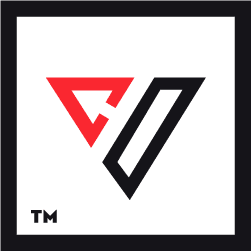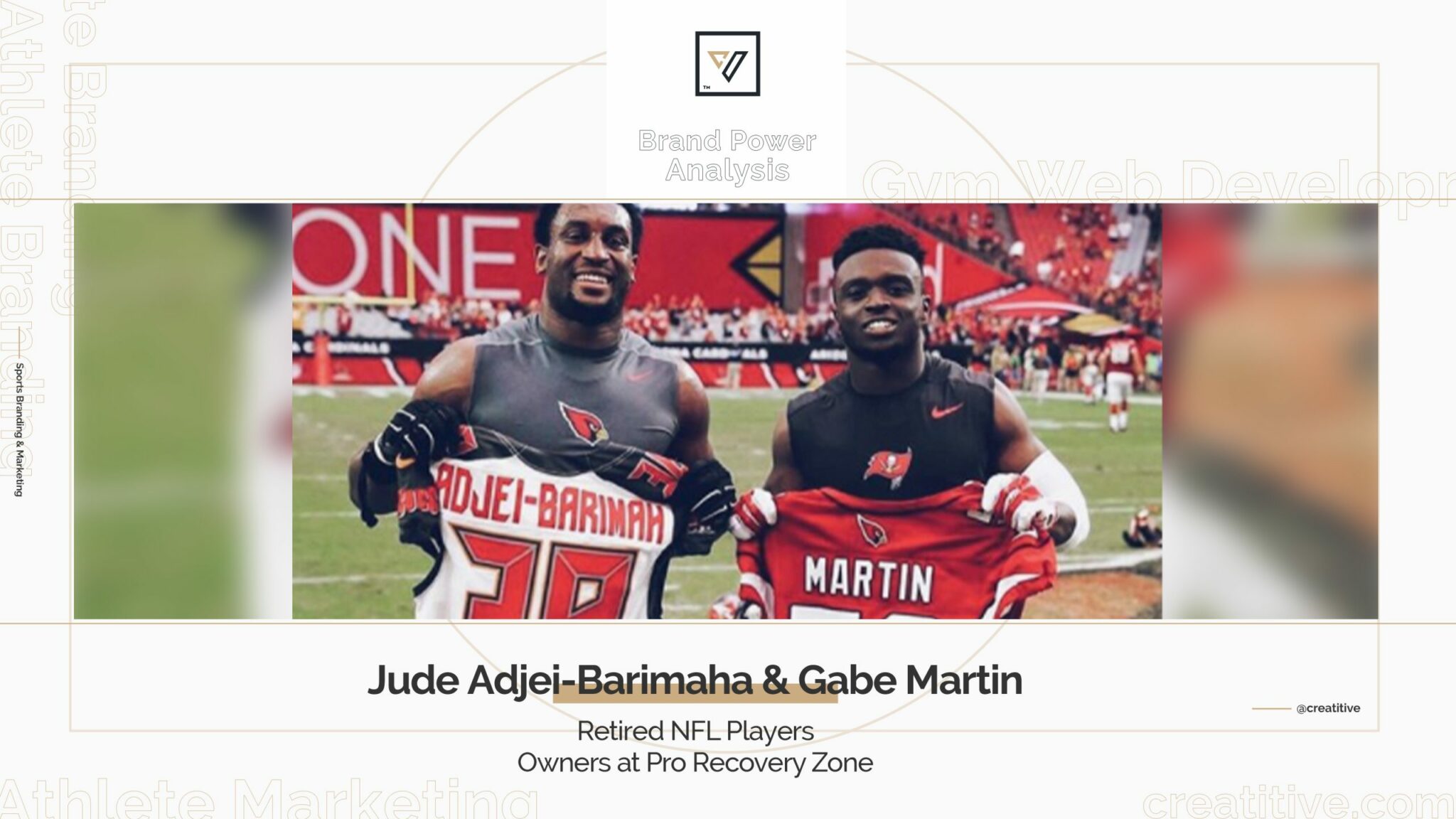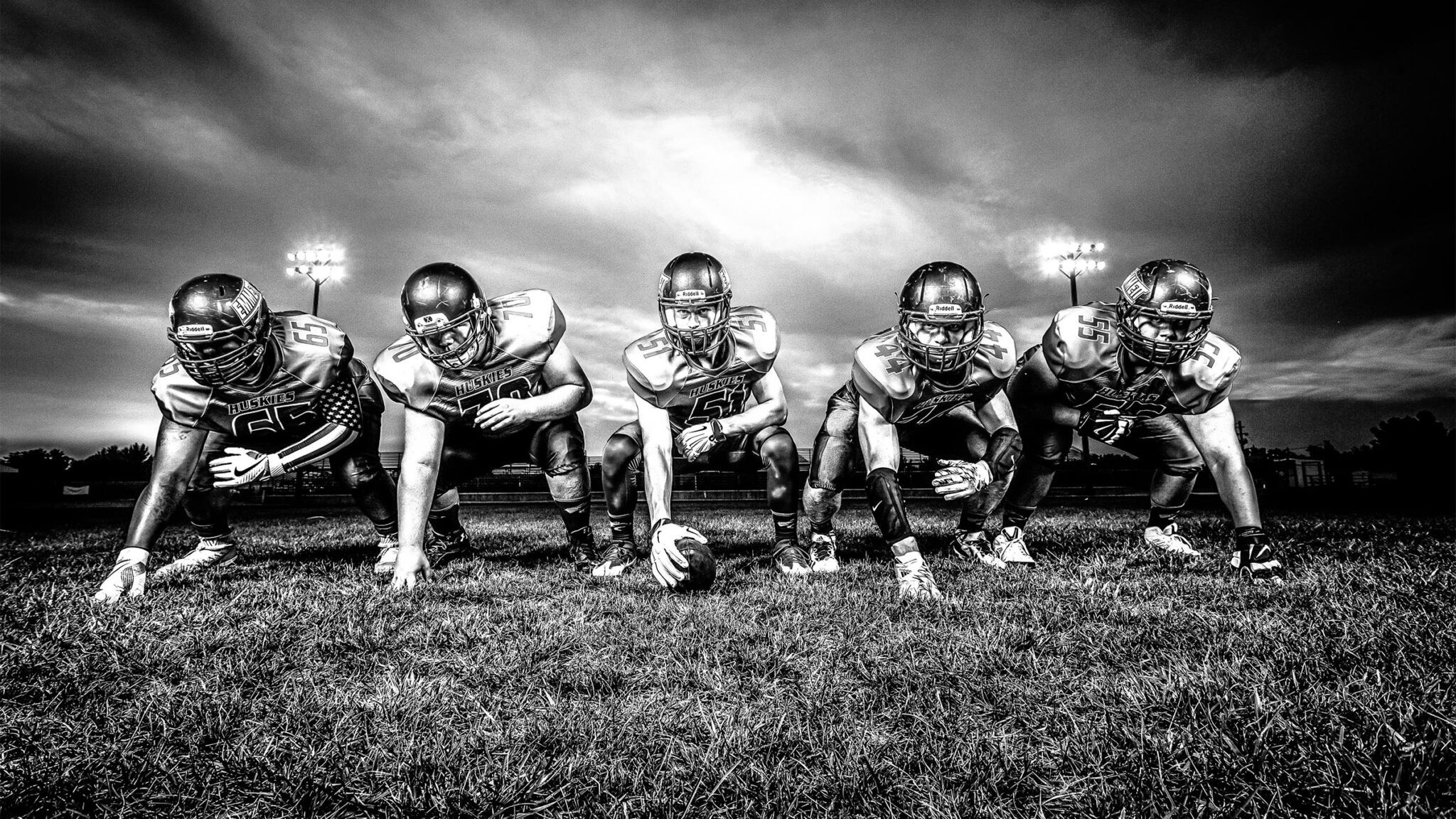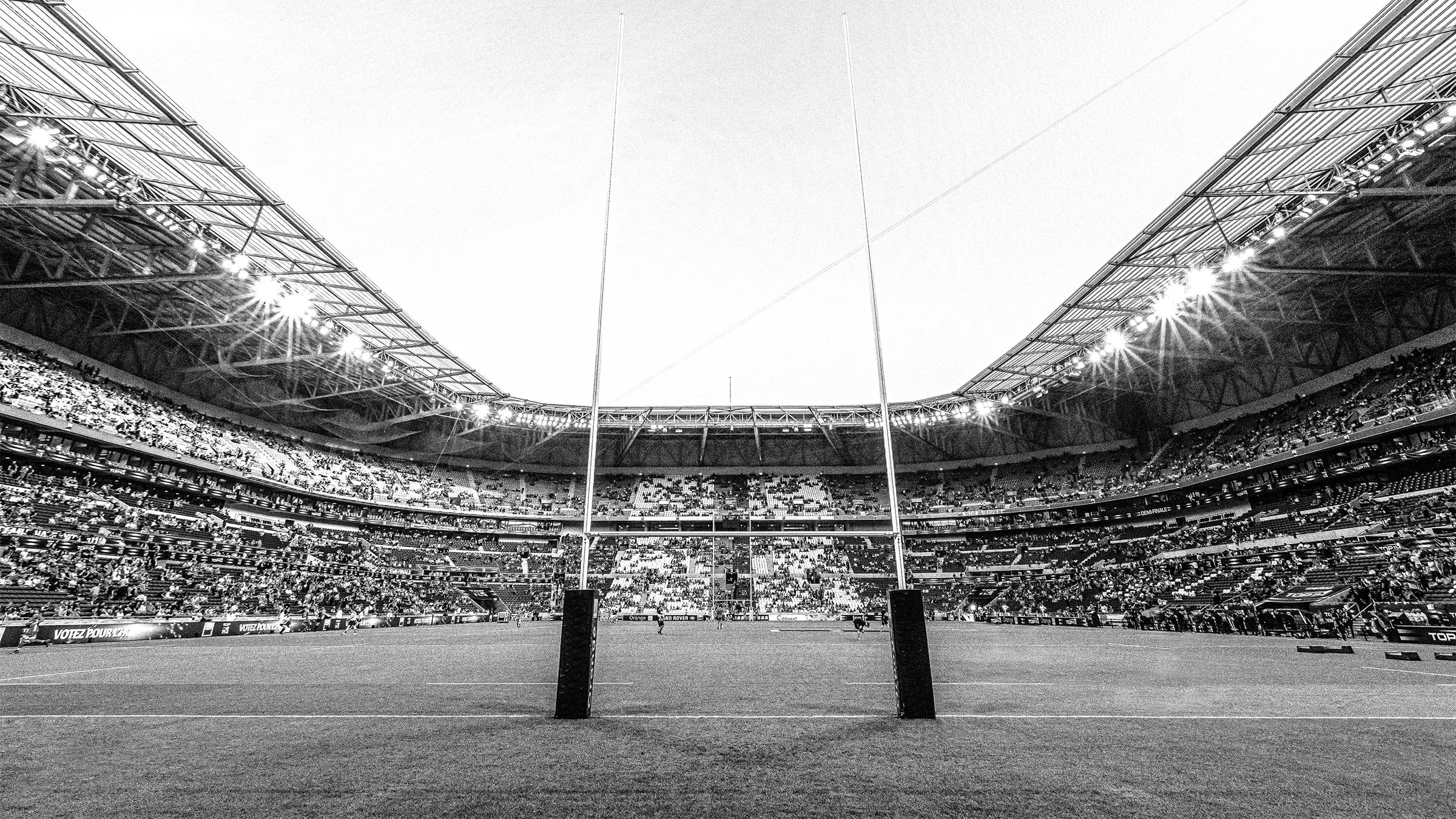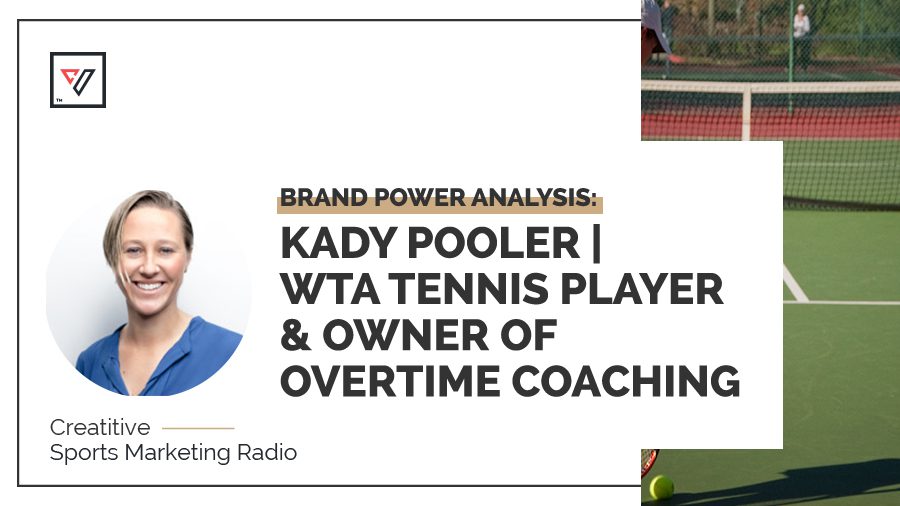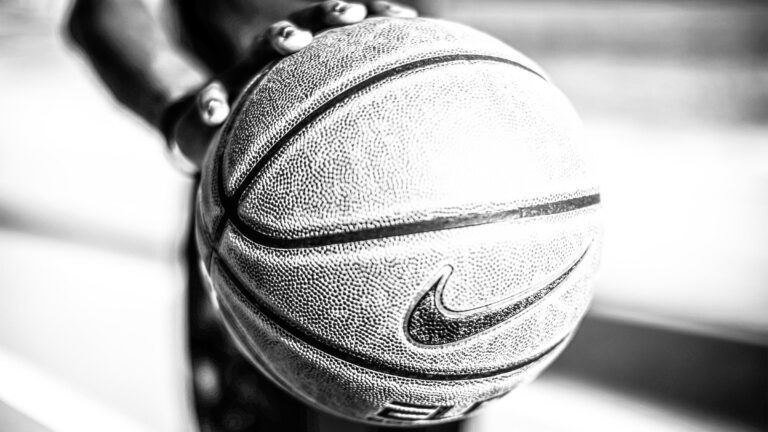Zack (00:06):
I wanna thank you for jumping on the call with me today. Um, I really appreciate it. Why don’t you kind of tell me a little bit about, yourself, and then we can kind of go into your journey and things of that nature?
Josh Hull’s Story
Josh Hull (00:19):
Yeah, absolutely. I’m from a small town in central Pennsylvania called Millheim. Uh, I grew up 30, 30, or 35 minutes East of Penn state university. From the time I was a little kid old enough to watch football, I dreamed of the days that I’d be able to, uh, to put the blue and white uniform on it and play for the Navy lines. Uh, my mom and dad used to take me up to the games when I was a little kid and we did that on an annual basis. Uh, just the thrill and ex- uh, the exhilaration of being able to sit in a stadium where 110,000 fans were there, um, regardless of who you’re playing as a fan was insane. So I really, really fell in love with that atmosphere really, really early on.
I was fortunate enough to walk on, uh, after I graduated high school, I was fortunate enough to walk on at Penn State on 2005. I played linebacker there and then ultimately earned a starting position my junior and senior years. When I earned that starting position, I got converted over to a full scholarship. Um, and then my aspirations, obviously once I cracked the starting lineup at Penn State was to, to have a career that would extend, into the National Football League. I was fortunate enough once again, to get drafted in the seventh round, uh, in 2009, by the St. Louis Rams. I spent three seasons in St. Louis with the Rams, I spent a season in DC with the Redskins, and then I got cut by the Jacksonville Jaguars and the New England Patriots, the following season.
Uh, getting cut by the Patriots stung a little bit, because that was the year they won the Super Bowl. So-
Josh Hull (01:46):
… it was really, really close to the ring, but just, unfortunately, couldn’t hold on long enough up there.
Zack (01:50):
Yeah, well, uh, that’s the Patriots for you. You know, I would say the reason they’re so good it’s because they, uh, their business is so in line. You look at them compared to the Browns and I feel like it’s, it’s the way they do the inner workings of the business that really has, have helped them achieve what they’ve achieved. Um-
Josh Hull (02:12):
Yeah, you’re, you’re exactly right. I mean, you, you, you hit the nail exactly on the head. And a lot of people from the outside world is a fan perspective. Don’t understand that football at the professional level is absolutely a business. Uh, that was the that was the most difficult professional atmosphere and environment that I’ve ever tried to perform in, in my entire law life. Uh, and it was just because Belicheck demanded so much of everybody in the organization, from the players to the medical staff, to the training staff, uh, et cetera. And then also every, it was the only organization and club that I was with in the NFL that literally measured everything.
And it goes down to the old adage, you can’t manage something without measuring it. So they had, they had accelerometers on all of our weight equipment in the, in the weight room where they’re measuring the force and speed that we move the bars. They measured caloric intake, we monitored how many hours a night we slept, and measured water intake. We, I mean, it was every single thing that you can possibly monitor. I was being measured and documented on a daily basis by. In- interesting, uh, interesting structure.
Zack (03:17):
Yeah. And so what, what would you say your difficulties, um, with the transition after sports? Did any of that stuff in the game kind of help you with the transition over?
Josh Hull (03:29):
Um, I’m sure it absolutely did. The the transition, the reason that my transitions Zack, was so difficult was it was because you just… Let me try to think how, how to answer this here. Um, I identified, so identified myself as a professional athlete and a football player, my entire career, probably starting from the time that I was 12 years old and started playing it in high school the whole way up through high school, into college and into the pros. And the problem with that was as long as I had football in my life, and I was performing at a high level on the field, I felt a lot of worth, um, internally and personally.
So when football was ultimately taken away from me in the NFL, my identity was, was truly, and literally stripped from me. I didn’t, uh, I had no idea, um, who I was as a person for the first time in my life. I always thought that I was a football player and I was very comfortable with that identity. Uh, football’s taken away and I< I suddenly who’s Josh Hull? I didn’t know that. It’s… Somebody that’s not a, a professional athlete or maybe even a clique college athlete that would seem kind of silly, but it was literally the only thing that I knew my entire life.
Um, so that, that was really the starting point of my transition when I realized that I was more than a football player and there was more to the person Josh Hull than just what I did professionally. That slowly started to kind of propel me on the path forward to kind of let go of my past, be thankful for it and be very gracious for the experiences I had, but also kind of let go of just being a football player and then trying to find myself professionally and personally after that.
Zack (05:05):
So how did you overcome some of those challenges? What, what planning did you do to help yourself, you know, through that?
Josh Hull (05:14):
Yeah. It’s um, this is gonna sound odd again. Um, losing football was, I draw the analogy, it’s very much like grieving a death and obviously it’s not, um, it’s different, but it absolutely was a grieving period and a grieving process for me sort of time. Um, they say time heals everything, and day by day, it’s slowly become a little bit easier for me to transition. And thankfully, I have a, a really strong support system around me at home. I have, uh, amazing wife, uh, my family, my wife’s family. Um, I had all the really important people around me, my entire life to help me through this transition. Um, but with that said, it’s still, it’s still, it was not easy Zack. It was, it was about a year and a half to two years until I finally saw the light at the end of the tunnel.
And it came down to a conversation my wife and I had one evening around the dinner table. I was just really, really struggling on, uh, on what I wanted to do. Uh, my, on… I should have said this probably early. My undergraduate degree was in engineering. So as soon, uh, as soon as I was done playing football, I jumped into the… No, I, I waited a year, tried to s- sign back on the team and once that year passed, I jumped into the engineering world. Um, and it was, it was very, very difficult for me to find passion there because I got my dream job at the age of 19 and I did it for five years and now the engineering, it’s an interest to me, but I wasn’t super, super passionate about it.
Um, so that kind of tripped some things in my mind. And now we can fast forward this conversation around the dinner table with my wife. Uh, she said, “You know, you’ve always been super passionate about the business world and potentially owning your own business, but you don’t really, um, know the nuts and bolts. So why don’t you consider going back to school and getting your MBA?” I’m like, “I’m 20…” At that point, I was 25 or 26 years old. (laughs) To go back to school again for two years, just to start, I’m like, I don’t really know if I want to do that. Um, ultimately made a decision to do that. And that was kinda when the aha moment went off in my mind that, uh, professional athletes absolutely make great candidates be successful business owners because of the unique skillset characteristics that, uh, we developed over our playing careers.
Zack (07:24):
Yeah. I’ve, I’ve, I’ve come to realize is I’ve come to go and do this niche myself, that sports and a- athletics are intermingled in some way form or another. There’s always an intermingle of something. And I see a lot of players like yourself trying to do something that they’re, they’re common with, um, and then kind of using that to their advantage as, as their passion, as they kind of move forward with, uh, trying to grow something that they’re passionate about. So why don’t you tell everyone what you’re kind of doing right now?
Josh Hull (07:58):
Yeah, so I alluded to earlier about going back to school to get my MBA. Uh, I did that at Penn State. Uh, during that process, I met a gentleman by… he was in the same cohort as me. Uh, and about halfway through, you know, I started bouncing his ideas off of, of one another, uh, that whole concept of how to do we kind of tie my passion for the sports world with David and I’s newly found business acumen. Then we toiled with that idea and just kind of massaged it and went back and forth. And then after we graduated really stuck our teeth in with further developing that and… At the end of the graduation, what came of that, David and I, uh, co-founded content consulting and we help professional athletes become successful business owners.
Uh, and what that… our services within that title, they take three different shapes, uh, it’s business development, business redevelopment, and then opportunity evaluation. And I can go into those if, uh, if you want me to. I will go into detail if you’d like.
Zack (08:53):
Yeah. Why don’t you? And that kind of goes into the next question on, uh, what makes athletes great business owners? ‘Cause I think that’s one of the reasons you probably came up with, with some of these, these steps. So why don’t you tell everyone the steps and how it works, with athletes?
Josh Hull (09:09):
Yeah. So let me, I guess I’ll answer the f- the la- latter portion of that question first, some of my opinions are why I think professional athletes make such good candidates to be business owners. Uh, the one thing, and these are in no particular order, um, our ability to work and handle stress, um, is, is [inaudible 00:09:28]. I mean the environment that we performed in [inaudible 00:09:33] there’s a high, there’s a very high bar and expectations, there’s a lot of volume of work that needs to be accomplished in a single day. And that tailors exactly into what we did on a day-to-day basis as professional athletes.
The bar was set really high, there were long work hours and we literally, uh, in the game setting, I mean, you force yourself to work through fatigue. Uh, and to kind of build on that and compound a little bit farther, we’re also very adept at making a split decision at a split second, accurate decisions based on a pile of information that is presented to us at one time. So for me personally, uh, being an inside linebacker, being a captain of the defense, you need to be able to, first of all, take the call in, you need to get the guys in front of you lined up, so the front [inaudible 00:10:16], the front is lined up appropriately, you need to know what the linebacker is doing and you also need to know what coverage is taking place behind you.
So all of this is dictated on down and distance on field locate, where the ball’s at on the field, and the formations that the offenses are presenting. So literally this has to happen in a second or two. So we’re simulating all this information, you need to make a decision, and boom. Uh, if you kind of flip over into the business world, it’s no different. Uh, when you’re making strategic decisions, there are competitors all over the place, there’s a pile of information that is linked somehow, but on the surface, it’s very difficult to see that. So as you work through it and massage it, you can slowly begin to put piece by piece by piece together. So I think that the ability to assimilate and make sense of a lot of chaotic information and noise and dumb that down into one or two strategic objectives is something that athletes are very well at doing.
Um, also communication, uh, leadership, uh, the, the generic, you know, tangibles that that often brought, brought up in this discussion are also very, very applicable in the business world. Um, this professional, uh, in, in my playing football, particularly some of the environments that you’re forced to communicate in, you literally can’t hear. So you’re using hand signals, you’re using all kinds of ancillary means, to communicate rather than verbal. And I think, although this might seem like a stretch to a lot of people, in the corporate and business world, it’s more than just picking a phone up and calling somebody. There are also a bunch of different formats and mediums that you can be forced to communicate through. So having a little bit of, uh, um, comfort level with that doing in the past also helps.
Leadership characteristic skills, um, that kind of speaks for itself, I don’t really have to go into detail with that, I don’t think. Um, I’m trying to think of another good analogy too, as professional athletes, you’re basically the CEO of your body. Um, if your body is not working for it, you’re not making money. And you also have the ability to control what goes into your body and, what you put in your body controls the output and your performance. So if you correlate your business to your body, I think there are a lot of crossovers, uh, actually having a bonafide business that is not you as a person.
Athletes and Business
Zack (12:25):
Yeah, I, I, I can, uh, somewhat relate to that being a business owner myself, uh, because I feel like when you guys are on the field, you have other teammates, you, you guys are working with a team. And I think that goes into the next question on there’s great opportunity there, but there’s also some struggles that athletes probably come about with when it comes to owning a business. And I think a lot of that has to do with they’re so used to… you’re so used to working as a team and having, having teams tell you what to do and them running a business that way, when you come out on your own at first, a lot of times you feel like you have to do everything yourself.
And I feel like that’s… I, I, I see a lot of athletes trying to do too much on their own and trying to get them to understand, hey, just like on the field and working as a team, you should develop a team off the field. Is, is that something you feel like athletes struggle with? Or what do you feel like about some of the struggles?
Josh Hull (13:18):
Yeah, that’s, that’s a great, a really good point that you bring up, Zack. There’s a reason on a football field, on both sides that there are 11 players that’s because each person has, a specific task and an objective to accomplish on every play. And that’s no different, uh, in the business world, it’s important to have… You act as a CEO, you have the CEO, the CFO, the guys that control IT, and then underneath them, obviously it’s a tree that spreads out that they all have people to help them as well. Um, that is something that I… you’re, you are 100% correct. I feel like, uh, I’m a really type A personality, probably some of that comes from, from my past profession. But I oftentimes feel that I need to be in control of everything and, um, what better way to control stuff and, and to give all the responsibility to me.
So that’s something that I fight, uh, on a day-to-day basis and becoming comfortable and finding that support team and, and your teammates beside that you can literally, you can really trust in the business world just like you did on, on the playing field. Uh, I think one of the… You asked about another difficulty. Some of the things that these athletes might face kind of ties into this same realm are as a, as a player in the NFL, you’re so used on a day-to-day business, uh, on a day to day… You’re so used to having somebody tell you what to do. So when I played for the Rams, for instance, they told me where I needed to be, they told me what time I needed to be there, and they told me what I needed to bring to that meeting.
And it was literally here’s, here’s an agenda all so I had to do was follow it. Um, as a business owner, you don’t have those people telling you what to do in every arm of your business. So there’s a little bit of a disconnect and that can be a great growing pain for some people. I think I’ve done a pretty good job in managing that. Uh, David, my business partner, um, is really, really good at kind of, uh, outlining… uh, he has a very [inaudible 00:15:10] down segment by segment, by segment. So he’s kind of my coach, um, on a lot of the day-to-day stuff that he and I work collaboratively on.
Zack (15:17):
Yeah. I think and, and as a business owner in general, I think there are so many little things that add up to big things that you don’t actually see a paycheck from. It’s not like going in-
Josh Hull (15:17):
Right.
Zack (15:27):
… and, and having someone tell you what to do. I, I, I feel like for me, for instance, there’s a lot of those little things that I have to do, my, I do have to do myself. But it doesn’t necessarily add up to, oh, I’m gonna do this and I’m gonna make 100 bucks, I’m gonna do this and make 200 bucks. It’s knowing that it’s growing your business and in the long run, it’s gonna do it. So that really, from a business perspective, that is a struggle because you’re like, oh, well, I’m not gonna see the fruits of this labor for a long time, so I do it.
You know, so I can definitely see that being an even bigger struggle for athletes with that situation. So what are some, uh, what are some things athletes can learn, you think in regards to building their brand, uh, brands from other business owners out there that they own businesses?
Josh Hull (16:13):
I think tailoring with the same theme that we’ve been on here for the last couple of minutes, one of the things that they can learn and absolutely need to learn is building a strong circle of influence, strong support staff, and a strong team to support their day to day. Um, they need to, they, and I am included in, in the term they, uh, we really need to understand that you can’t, you literally can’t do everything that you need to do. So it behooves you to find people that you can really trust, um, to do the… you give them an objective and set them off on it and they can accomplish it with very little oversight. It’s important to have that team of, of four or five, six, seven, however many people are around you you can really, really lean on, um, when you need to.
Zack (16:57):
Let the experts do what they do best. That you own the business and like-
Josh Hull (17:00):
Exactly.
Tangibles V Intangibles
Zack (17:01):
I think that’s a, a- an, an even pain point with working with not just athletes, but other companies, in general, is they try to do a lot of things themselves, not realizing people go to school and get MBAs in business, or they go to school for design or development or any sort of digital marketing or, or anything and they’re, they’re the expert at it. So leverage that and pay them accordingly for that and let them help you build, your business as long as you trust them of course. Uh, so why don’t you now dive into, I think we kind of, we kind of skipped it, why don’t you dive into some of those, those, uh, things that you do, the, the three steps that you kind of do when you help, uh, athletes grow the business?
Josh Hull (17:42):
Yeah, most certainly. I wanna say one thing here before I dive into that. One kind of a cliche or soundbite, if you wanna call it, um, that has been told to me several times, I didn’t initially understand it at first, but now it makes a lot of sense to me, we need to, as professional athletes making the transition into the business world, you need to know what you know, and you also need to know what you don’t know. And the things… (laughs) Understanding and knowing what you don’t know, that’s the niche where you need to bring support staff and people and teammates to fill that niche, um, and that void that you don’t necessarily have the ability, uh, skill, comprehension, et cetera, too, to success.
That’s a that’s, that’s kind of wrong in my mind on, on some… Several players that I’ve come in contact with that have made successes in the entrepreneurial world after that. So that’s one of the big things that helped them transition.
Zack (18:28):
Yeah, I’ve noticed, uh, I, I’ve noticed that myself as a, as a, as a business owner, before I bring on a service that I’m gonna provide the clients and I hire an employee for it, I try my best to take six months to a year to understand that enough where I’m not, you know, a hundred percent great at it, but I know enough that I can hire someone to do it and to do it correctly. Do you know what I mean?
Josh Hull (18:52):
Absolutely. Yeah.
Zack (18:53):
So I definitely think that that’s, that’s, that’s some good advice. So how can, how can you, uh, how do you think with that said help athlete… how can you help athletes move forward? Any advice moving forward?
Contend Consulting
Josh Hull (19:05):
I will, I’ll dig into a little bit to the three arms of our, our service arms that, uh, fall under our umbrella. The first one is the business development realm. And within that realm, we take the hands of our athletes and we walk through every single process that is involved, turning an idea or concept or process into an actual bonafide operating business. So what that looks like it’s, it’s formal business plan creation, uh, within that formal business planning creation. That’s helping them walk through their vision, their mission. Um, branding, which is something that we don’t personally do, but that’s why we have people like Zack on our staff to help with that.
Um, in that form business plan, it’s, uh, it’s client acquisition, it’s understanding markets, it’s creating costing strategies, uh, supply chain. So literally any possible thing that you can think of to take your idea and turn it into a business is what falls into that formal band… formal business planning and creation. Um, on the business redevelopment side, that is tailored specifically towards athletes who already own a business but are struggling with one, a certain aspect of it, whether it’s, uh, their bottom line, not being big enough, their top line not being big enough. Uh, it could be a market that they’re interested in penetrating but they don’t necessarily know how to get there. Uh, we’ll work with the athlete, and David and I go in and conduct a complete strategic shakedown. And then we use… we, we offer justified, uh, recommendations on how to improve their status quo.
Um, the third arm is the opportunity evaluation. And that’s, David and I created a proprietary system that’s called a true match system. And under that system, we create a client profile based on X number of parameters from the player themselves. And then we’re using a logarithm to cross-correlate that with an investment profile. And what our logarithm does, it tells us how good or how poor of an investment fit investment, um, the investment is for the, for the athlete, him or herself. And if it’s a great fit, we’ll work with them to put all their ducks in a line and get them in a row to move forward. And if it’s a poor fit and they’re still interested in it, we’ll work with them too, one understands why it’s a poor fit and then, two come up with, uh, a strategy to mitigate some of the shortcomings of the investment opportunity to further kick it down the line, to see if we can turn it into something that does make sense for them.
Interview Outro
Zack (21:22):
But yeah, so overall, that sounds awesome. Uh, I think that true match system really sounds interesting, I can’t wait to see more in it. As, uh, some of you may not know yet we’re planning a partnership here, so you will be able to find Josh Hull’s website and his contact information, which will be actually here in the next couple of weeks on my website if you’re interested. So why don’t you tell people where they can find you as well?
Josh Hull (21:47):
Yeah. Perfect. LinkedIn is the best place to reach my personal profile. And it’s just Josh Hull on there. Content Consulting also has a page, um, but it’s not as robust as my personal page. And then our website URL to Content Consulting is www.thecontendteam.com, and contend is spelled C-O-N-T-E-N-D.
Zack (22:12):
Well, great. Well, I really appreciate you having, having, uh, being on the podcast. Uh, I look forward for us to working a little bit more in the future together as well. If there are any last words you can tell either athletes or fans, what would that be?
Josh Hull (22:27):
… I think the message… No, yeah, that’s okay. I think the message that I want to make sure that professional athletes, and, and even more than professional athletes, high school athletes, and college athletes understand that at the end of the day, you most certainly are more than just what you do for a living or what you’ve done as leisure. So you’re more than an athlete, you’re more than what your sport is. And unfortunately, I didn’t understand that until after my playing days were over. So I think the transition could have been… I could have made that transition a little bit easier for myself had I realized that there was more to Josh Hull than just being a football player all my career.
Zack (23:03):
Yeah. That’s great advice. it’s always great to hear from another, a natural professional athlete. So again, thanks, thanks for being on, and, a lot more to come in the future. So thanks again.
Josh Hull (23:26):
Yeah. Thanks, Zack. I appreciate it.
